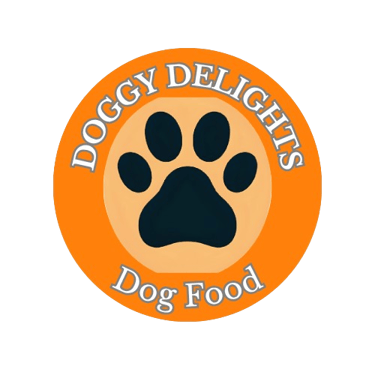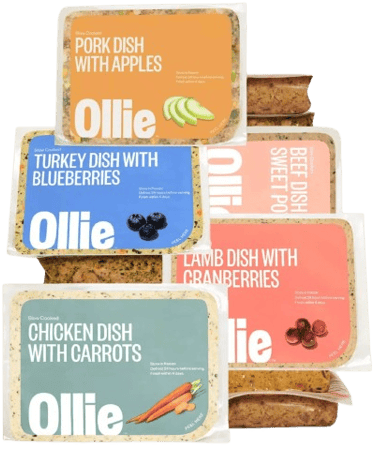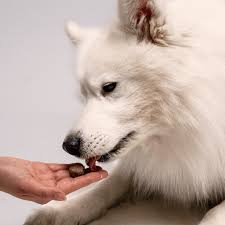Leading Dog Food for Pregnant Dogs
Expecting a litter of puppies? Congratulations! As a soon-to-be dog parent, you'll want to ensure your pregnant pup gets the best nutrition possible. Let's dive into the world of dog foods for pregnant dogs and discover some top choices to keep your furry friend healthy and happy.
Remember, pregnant dogs often benefit from puppy food due to its higher nutrient content and increased energy levels. Always consult with your veterinarian to determine the best feeding plan for your pregnant dog, as individual needs may vary.
By choosing high-quality, nutrient-dense foods, you're setting up both mama dog and her future puppies for success. Happy feeding, and here's to a healthy pregnancy for your furry friend
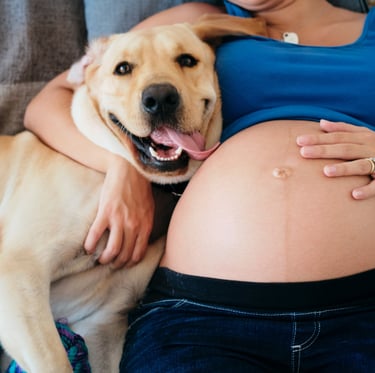






Get the Best Deals
Free Dog Food Alerts
How to Choose the Correct Dog Food
Calculate Your Dog's Food Type
Related Articles:
1. What are the key nutrients to look for in dog food for pregnant dogs?
2.How does the protein content in dog food affect pregnant dogs?
3. Are there any specific benefits of using fresh dog food for nursing dogs?
4.How does the fat-to-protein ratio in Orijen Six Fish impact nursing dogs?
5. What are the benefits of grain-free dog food for pregnant dogs?
Home > Leading Dog Foods > Dog Food FOR Pregnant Dogs
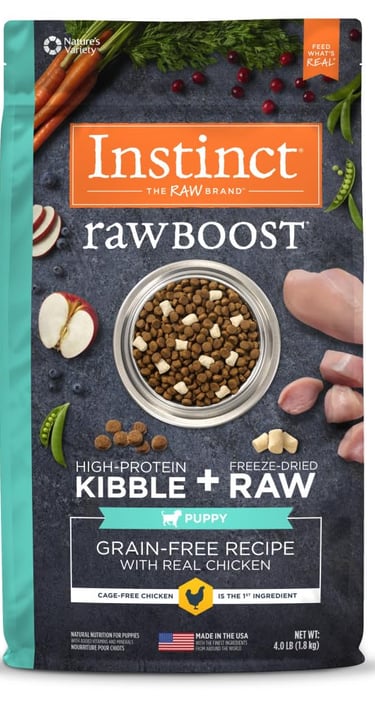

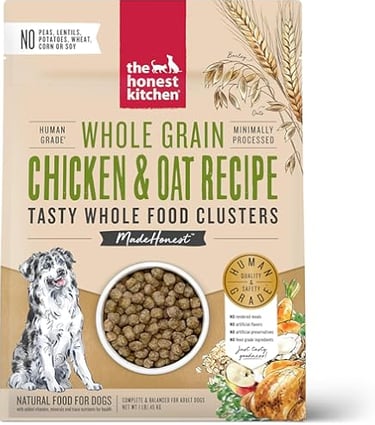

1.What are the key nutrients to look for in dog food for pregnant dogs?
When selecting dog food for pregnant dogs, it's crucial to focus on several key nutrients to support both the mother's health and the developing puppies. Here are the essential nutrients to look for:
Protein:
High-quality protein is vital for pregnant dogs, with a recommended content of at least 22-32% in their diet. Look for animal-based proteins like chicken, beef, or fish1. Protein supports puppy growth, milk production, and helps maintain the mother's muscle mass.
Fats:
Healthy fats are essential for energy and proper development. Aim for a fat content of 8-12% of caloric intake. Include sources rich in omega-3 fatty acids, especially DHA, which supports brain and eye development in puppies
These minerals are crucial for bone development in puppies and milk production. The recommended calcium-to-phosphorus ratio is 1.2:. However, avoid separate calcium supplementation, as excessive calcium can lead to health issues.
Vitamins and Minerals:
Ensure the food contains essential vitamins (A, D, E, K, and B-complex) and trace minerals like zinc and iron1. These support various aspects of fetal development and maternal health.
Carbohydrates:
Digestible, nutrient-dense carbohydrates should make up about 40-50% of the diet to provide readily available energy.
Calorie Density:
Choose calorie-dense food to ensure the dog gets enough energy in smaller portions, as pregnancy can reduce stomach capacity15.
Look for dog foods specifically formulated for pregnancy/lactation or high-quality puppy foods, as these often meet the increased nutritional demands of pregnant dogs. Always consult with a veterinarian to determine the best feeding plan for your pregnant dog, as individual needs may vary.
2.How does the protein content in dog food affect pregnant dogs?
Protein content in dog food plays a crucial role in the health and development of pregnant dogs and their puppies. Here's how protein affects pregnant dogs:
Fetal Development: High-quality protein supports the growth and development of puppies in the womb, especially during the rapid growth phase in the final weeks of pregnancy.
Maternal Health: Adequate protein helps maintain the pregnant dog's muscle mass and overall health throughout gestation
Increased Requirements: Pregnant dogs need higher levels of protein than usual, with recommendations suggesting at least 22-32% of their diet should come from high-quality animal-based proteins like chicken, beef, or fish.
Late Pregnancy Needs: In the last period of gestation, protein requirements can increase up to 40-70% compared to maintenance levels.
Puppy Food Transition: Many veterinarians recommend transitioning pregnant dogs to high-quality puppy food around week 5-6 of pregnancy, as these formulas typically contain higher protein levels to support both the mother and developing puppies.
Milk Production: Adequate protein intake during pregnancy also supports milk production for the upcoming lactation period.
Preventing Complications: Insufficient protein intake during pregnancy can lead to negative outcomes such as low birth weight puppies, increased puppy mortality, and limited immunocompetence in newborns.
To ensure proper nutrition, look for dog foods specifically formulated for pregnancy or high-quality puppy foods that meet the Association of American Feed Control Officials (AAFCO) recommendations of at least 22% protein content for pregnant dogs. Always consult with a veterinarian to determine the best feeding plan for your pregnant dog, as individual needs may vary.
3.Are there any specific benefits of using fresh dog food for nursing dogs?
Yes, there are several specific benefits of using fresh dog food for nursing dogs:
Higher nutrient density: Fresh dog food typically contains more bioavailable nutrients, which is crucial for nursing dogs with increased nutritional needs.
Increased energy: The high-quality ingredients in fresh food can provide nursing dogs with more energy to support milk production and care for their puppies.
Better coat health: Fresh food can contribute to a shinier coat, which is beneficial for both the nursing dog and her puppies.
Improved overall health: Fresh dog food may lower the risk of cancer and other serious health issues, which is particularly important for nursing dogs.
Fewer allergy symptoms: Some nursing dogs may experience reduced allergy symptoms when fed fresh food.
Potential for longer lifespan: A study found that dogs fed fresh food lived almost three years longer than those fed commercial food, which could benefit nursing dogs in the long term1.
Support for lactation: Fresh food often contains high-quality proteins and omega-3 fatty acids, which are essential for milk production
Easier digestion: Minimally processed fresh food can be easier for nursing dogs to digest, ensuring they absorb more nutrients.
Hydration support: Fresh food typically has higher moisture content, helping to keep nursing dogs hydrated, which is crucial for milk production.
Customization: Many fresh dog food services offer customized meal plans, which can be tailored to meet the specific needs of nursing dogs.
By providing nursing dogs with fresh, high-quality food, owners can help ensure optimal health for both the mother and her puppies during this critical period.
4.How does the fat-to-protein ratio in Orijen Six Fish impact nursing dogs?
The fat-to-protein ratio in Orijen Six Fish can be beneficial for nursing dogs due to its nutrient-dense composition:
Higher fat content: Orijen Six Fish has a fat-to-protein ratio of about 44%3. This higher fat content is advantageous for nursing dogs, as it provides:
Increased energy density to support milk production
Essential fatty acids for puppy development
Calorie distribution: The food provides 42% of calories from fat and 39% from protein24. This calorie distribution mirrors the natural diet of dogs, which is particularly important for nursing mothers with high energy demands.
Protein quality: Orijen Six Fish uses high-quality animal proteins, with 85% of ingredients coming from fish sources6. This ensures nursing dogs receive essential amino acids for milk production and tissue repair.
Nutrient density: The high protein and fat content, combined with lower carbohydrates, provides a nutrient-dense food that supports the increased nutritional needs of lactating dogs3.
Support for lactation: Orijen recommends increasing food intake by 50% during lactation and feeding 3-4 times daily2. This aligns with the higher energy and nutrient requirements of nursing dogs.
All life stages formula: Orijen Six Fish is suitable for all life stages, including pregnancy and lactation, except for large breed puppies in early growth stages6.
While the fat-to-protein ratio in Orijen Six Fish appears beneficial for nursing dogs, it's important to consult with a veterinarian to ensure it meets the specific needs of individual dogs during lactation.
5.What makes Acana Free-Run Poultry a good choice for nursing dogs?
Acana Free-Run Poultry Recipe offers several benefits that make it a good choice for nursing dogs:
High protein content: With 29% protein, this formula provides the necessary nutrients for milk production and tissue repair in nursing dogs13.
Balanced fat content: The 17% fat content offers a good energy source for lactating mothers2.
Quality ingredients: The recipe uses free-run chicken and turkey as the first two ingredients, ensuring high-quality animal protein sources34.
Nutrient density: With 3475 kcal/kg, it provides concentrated nutrition to support the increased energy needs of nursing dogs3.
Digestive support: The formula includes fiber-rich vegetables and fruits like pumpkin, apples, and pears, which can aid in maintaining digestive health4.
Omega fatty acids: With 3.5% omega-6 and 0.6% omega-3 fatty acids, it supports skin, coat, and puppy development2.
All life stages formula: This food is formulated to meet AAFCO standards for all life stages, including growth and reproduction13.
No artificial additives: The recipe is free from artificial colors, flavors, and preservatives1.
Probiotics: It contains added probiotics to support digestive and immune health34.
While Acana Free-Run Poultry offers these benefits, it's important to note that as of 2025, there may be newer, specialized formulas for nursing dogs. Always consult with a veterinarian to ensure the best nutritional support for a nursing dog's specific needs.
